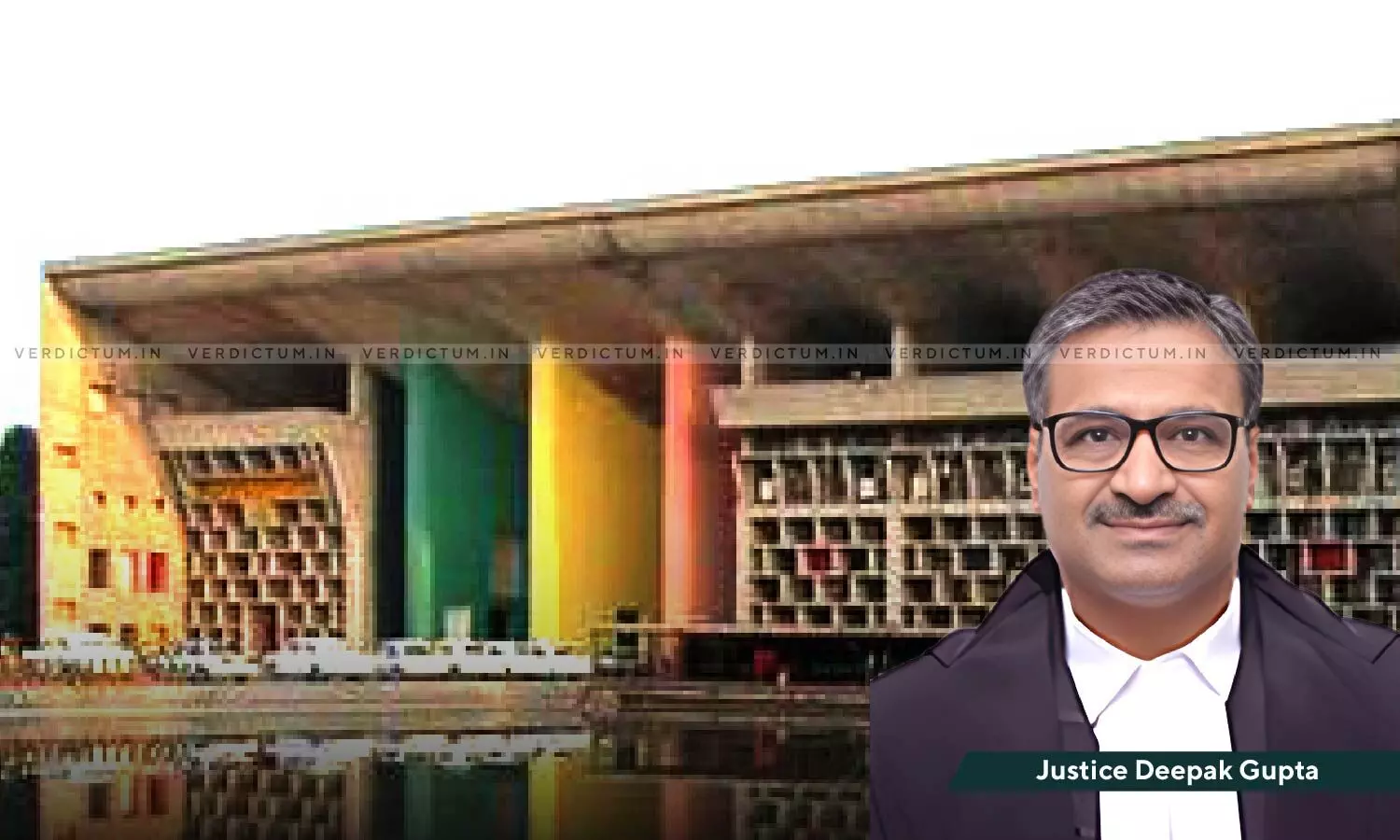
Casteist Slurs Uttered Within Four Walls Does Not Constitute An Offence Under SC/ST Act: Punjab & Haryana HC
 |
|The Punjab and Haryana High Court has reiterated that casteist words or slurs uttered within four walls does not constitute an offence under the Scheduled Castes and Scheduled Tribes (Prevention of Atrocities) Act, 1989.
The Court observed thus while granting anticipatory bail to the appellant, considered the fact that no particular caste was uttered by the appellant amounting to an insult or humiliation to the complainant.
The bench also noted that for the purposes of Section 3 (1) (r) and (s) of the Act, the accused must know that the complainant or the aggrieved person is a member of Scheduled Caste/Schedules Tribal and the insult or intimidation or abusing must be in any public place within the public view.
Justice Deepka Gupta thus while referring to Hitesh Verma v. State of Uttarakhand, 2020(4) RCR (Criminal) 868 observed, “…all the insults or intimidation to person would not be offence under the Act, unless such insults or intimidation is on account of victim belonging to Scheduled Caste or Scheduled Tribe and further another important key ingredient of provisions is that the insult or intimidation should be in any place withing public view. In the case before the Hon’ble Supreme Court, the allegations of abusing informant were within four walls of building. There was no other member of public at the time of incident and it was held that the basic ingredient that words were uttered ‘in any place within public view’ were not made out”.
Advocate Tanvir Singh Attariwala appeared for the appellant, DAG Punjab Randeep Singh Khaira appeared for the State, Advocate Manish Verma appeared for the complainant.
The appellant had challenged an order passed by Special Judge, Ludhiana, whereby the Court owing to the bar under Section 18 of the Act, had rejected her anticipatory bail application under Section 438 CrPC for offences under Sections 302, 323 of the IPC, 1860 {Section 307 of the IPC, 1860 and Sections 3 & 4 of Scheduled Castes and Scheduled Tribes (Prevention of Atrocities Act), 1989 added later on}.
The applicant had allegedly used the word ‘ aukat’ (status) and had uttered casteist words against the deceased during an altercation, where the dispute was related to purchase of a banquet hall. The appellant was the wife of the main accused, who allegedly ran over his car over the deceased after the altercation, where the deceased succumbed to his injuries. She contended that no role is attributed to her in the matter and that all allegations are against her husband, who has already been arrested.
It was thus argued by the appellant that since the FIR did not disclose as to what words were used by the appellant, therefore it showed that the allegations were vague and had no basis. Furthermore, that prima facie ingredients of Section 3 & 4 of the SC & ST, Act 1989 were not fulfilled as there was nothing to show that appellant had any prior knowledge of the caste of the complainant, compelling her to utter any such words.
The bench thus also observed that, “No doubt that Section 18 & 18A of the SC & ST, Act provides that provisions of Section 438 of the Code of Criminal Procedure shall not apply in relation to any case involving the arrest of any person on an accusation of having committed an offence under the SC & ST, Act but the Court is not debarred from considering as to whether, from the accusations made, prima facie offence under Section SC/ST, Act is made out or not”.
Cause Title: Rajinder Kaur State of Punjab [Neutral Citation: 2023:PHHC:140632]
Click here to read/download the Order